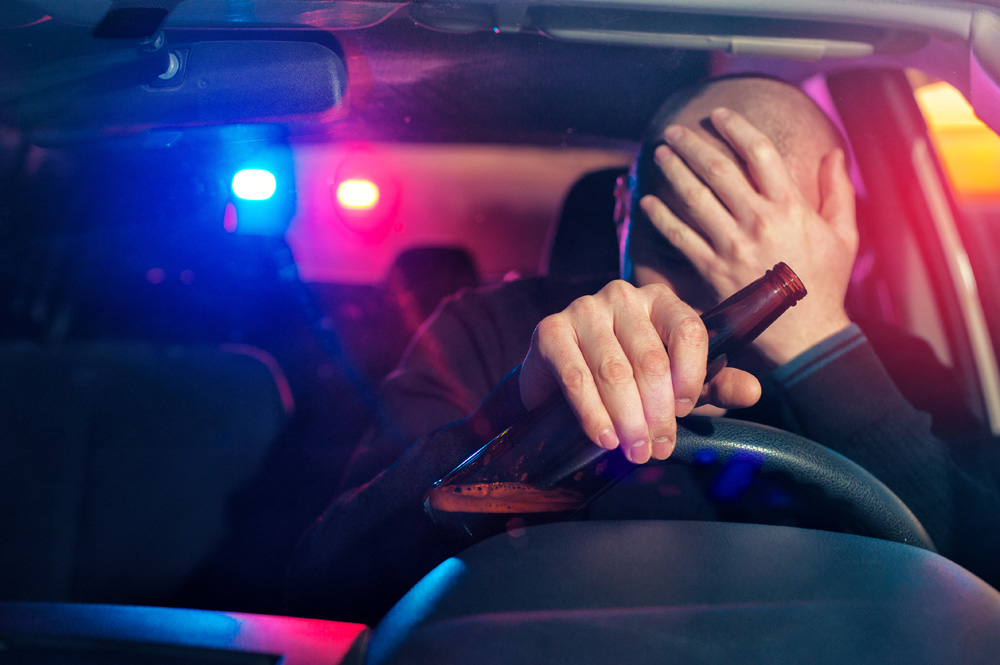At our law firm, our Springfield DWI attorneys have encountered a myriad of misconceptions and downright myths surrounding DUI charges. It’s astonishing how misinformation spreads like wildfire, leading individuals astray when it comes to understanding the intricacies of drunk driving laws. So, let’s gather ’round, buckle up, and embark on a journey of myth-busting, where we separate fact from fiction and shed light on common DUI myths.
Myth 1: Law Enforcement Officers Must Catch You Driving to Make a DUI Arrest

This classic misconception that has fooled many. Contrary to popular belief, you don’t need to be caught in the act of driving to find yourself on the receiving end of a DUI arrest. The notion that a law enforcement officer must witness you swerving down the road or performing a questionable rendition of a three-point turn is simply not true.
In reality, an officer can initiate a DUI arrest if they have reasonable suspicion that you were driving under the influence. This means that if you’re found behind the wheel, even if the car is stationary or parked, and you exhibit signs of intoxication, such as slurred speech or the scent of alcohol on your breath, they have every right to take action.
It’s time to dispel this myth once and for all. Don’t fool yourself into thinking that you can evade a DUI arrest simply by keeping your vehicle still. Remember, the focus is on impaired driving, not just the act of driving itself. Stay safe, stay sober, and stay aware of the real consequences of drinking and driving, regardless of whether your car is in motion or not.
Myth 2: Eat a Meal or Wait at Least an Hour to Lower BAC Levels
Consuming food, drinking coffee or waiting for some arbitrary period of time will not magically eliminate the alcohol in your system or lower your BAC (blood alcohol content) levels. Sure, eating food before or during drinking may slow down the absorption of alcohol, but it won’t make you sober or help you pass a breathalyzer test.
Alcohol metabolizes at a relatively fixed rate, typically about 0.015 percent BAC per hour. No amount of food, coffee, or wishful thinking can speed up this process. It takes time for your body to break down alcohol and eliminate it from your system. So, while it’s important to nourish yourself and allow time to pass after consuming alcohol, never rely on these methods to bring your BAC levels within legal limits.
Remember, the only surefire way to sober up and reduce your BAC levels is to wait it out until you are completely sober (AKA: hungover) or, better yet, abstain from alcohol altogether if you plan to get behind the wheel. Don’t fall for the misguided notion that a meal or a fleeting moment can undo the effects of intoxication. Stay responsible, stay informed, and make smart choices to keep yourself and others safe on the road.
Myth 3: If you put a penny in your mouth, take a swig of mouthwash, or chew a piece of gum while you’re being pulled over, you can pass the Breathalyzer test
The idea that placing a penny in your mouth, guzzling mouthwash, or vigorously chewing gum will somehow alter the results of a Breathalyzer test is nothing short of a farce. In reality, these actions have little to no effect on the accuracy of the test and may even lead to more complications.
Breathalyzer devices are designed to detect alcohol levels in your breath, not to be fooled by a pocket change or minty freshness. These gadgets are sophisticated tools calibrated to measure specific chemical compounds, and no amount of metal or mouthwash can alter their accuracy.
Instead of resorting to such futile measures, it’s essential to understand that attempting to deceive a Breathalyzer test can lead to severe consequences. In many jurisdictions, refusing to take a Breathalyzer test can result in immediate license suspension or other legal penalties.
When it comes to Breathalyzer tests, the best strategy is to make wise decisions from the outset. If you plan on consuming alcohol, it’s always advisable to designate a sober driver or arrange for alternative transportation. Trying to outsmart the system is a risky game that simply isn’t worth playing.
So, let’s abandon the penny, set aside the mouthwash, and skip the gum-chewing antics. Instead, let’s focus on making responsible choices and prioritizing the safety of ourselves and others on the road. Remember, there’s no trickery or quick fixes when it comes to Breathalyzer tests—just honesty and smart decision-making.
Myth 4: I can only be charged with a DUI if my BAC is above .08%
Contrary to popular belief, the legal limit of .08% is not the be-all and end-all when it comes to BAC standards. While surpassing this threshold is certainly an important factor in determining impairment, it is by no means the sole criterion for a DUI arrest.
In many jurisdictions, the law takes a holistic approach to assessing impairment. Even if your BAC falls below .08%, you can still be charged with a DUI if other evidence demonstrates that your ability to drive safely was significantly impaired by alcohol or drugs. Field sobriety tests, officer observations, erratic driving patterns, and other relevant factors can all contribute to establishing probable cause for a DUI arrest.
So, dear readers, let’s put this myth to rest once and for all. Don’t fall into the trap of thinking that as long as your blood alcohol level is below .08%, you’re in the clear. Impairment can be determined by various means, and the law takes a comprehensive view of the situation when evaluating DUI charges.
Myth 5: DUIs are Impossible to Beat

It’s essential to remember that everyone is entitled to a fair defense, and skilled DUI attorneys have successfully navigated these cases, achieving positive outcomes for their clients. From challenging the validity of traffic stops to questioning the accuracy of field sobriety tests and breathalyzer results, there are numerous strategies that can be employed to build a robust defense.
Each DUI case is unique, and the circumstances surrounding your arrest can significantly impact the outcome. Factors such as the reliability of evidence, procedural errors, and the experience of your attorney can all influence the ultimate result.
While we can’t guarantee a specific outcome in any individual case, we can confidently say that the myth of DUIs being unbeatable is simply unfounded. With the right legal representation, a thorough understanding of the law, and a well-crafted defense strategy, it is entirely possible to challenge DUI charges and achieve a favorable resolution.
If you find yourself facing a DUI charge, it’s crucial to consult with an experienced DUI attorney who can evaluate the specific details of your case and provide you with tailored guidance. Remember, don’t lose hope. You have the right to fight for your rights and challenge the allegations against you.
So, let’s dispel this myth once and for all. DUI cases are not insurmountable obstacles. With the right approach and a diligent defense, you can navigate through the legal process and work towards the best possible outcome.
